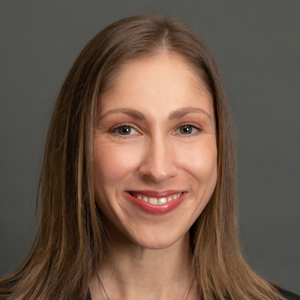Empowering Home Care Workers through Participatory Management
When considering the workforce concept of “participatory management,” which is the practice of empowering workers to engage in organizational decision-making, home care may not be the first industry that comes to mind. But for Cooperative Home Care Associates (CHCA), the country’s first cooperatively owned home care agency, participatory management is core to the democratic principles of the Bronx agency.
Founded in 1985 to provide quality home care for clients and quality jobs for home care workers, CHCA employs more than 2,100 staff today and is the largest worker-owned cooperative in the nation. With a turnover rate of less than 24 percent, CHCA is a leader in an industry that struggles to retain home care workers. A recent study of nearly 700 home care providers found that the national median turnover rate for frontline staff increased to 82 percent in 2018.
This past October, Adria Powell, CHCA President and CEO, and Denise Hernández, CHCA Vice President of Operations, earned certificates in participatory management from the Rutgers School of Management and Labor Relations in partnership with the Democracy at Work Institute.
I spoke to them about how participatory management fits into CHCA’s co-op model, their commitment to empowering home care workers, and how the lessons they learned from the Rutgers program can help strengthen how they engage CHCA’s workforce.
Arielle Altman: How does CHCA define participatory management, and why is it important?
Denise Hernández: Here at CHCA, participatory management is about empowering, training, and developing our staff so they have the information they need to make decisions and have their voices heard. It is about creating a culture where our people feel invested in and can, in turn, invest in the organization. In the end, this boosts productivity and helps our staff buy in to what the organization is striving to achieve.
AA: How does this align with CHCA’s model as a worker-owned co-op?
Adria Powell: Participatory management contributes to the culture of engagement we offer as a co-op. CHCA was created by taking a sector that often had horribly exploitative jobs with low wages and no access to training or benefits, and saying, ‘We can do better!’ We wanted to create good jobs for home health aides because we knew that investing in this workforce would result in the kind of quality care our community needs. By providing people with better wages, benefits, more stable hours, and free training to ensure they are qualified to do this work, our workers commit to us in return, and we don’t have the same turnover problems other agencies have. Using the structure of a worker-owner co-op allows us to always keep workers as a central focus.
AA: What were some key takeaways from the Participatory Management Certificate Program?
AP: As CHCA is starting our strategic planning process this year, the session on strategic planning really resonated with me. We discussed the notion of including frontline staff in the strategic planning process to have them generate ideas and think through different mechanisms for accomplishing our goals. Let’s lead with them! This relates to how we structured CHCA’s last all-staff meeting. Rather than having leadership pass down information, we collected questions from the staff that they were interested in discussing and brainstorming around. It led to an important discussion, and our staff felt heard and valued.
DH: One theme I enjoyed across the program is that ownership does not only have to be from a financial standpoint. CHCA does not make a huge profit and cannot always offer the same financial incentives that some other companies can. Still, there are plenty of opportunities for our staff to feel a sense of ownership over their work and to engage in organizational decision making.
AA: What are some other examples of what this ownership looks like?
AP: We have implemented so many programs around coaching and professional development, and we also educate everyone on how to read CHCA’s financial statements. Through programs that PHI helped us create, we train and develop crucial skills for everyone who walks through our door.
DH: In a recent study CHCA participated in, our home health aides reported a sense of owning their work and being able to make decisions in the moment that impacted their clients in a positive way. They have all sorts of requirements to follow as home care workers, but the ownership piece was still there. The idea is to develop our folks, and to continue to train them and give them the tools and resources they need to be effective. This builds them up.






